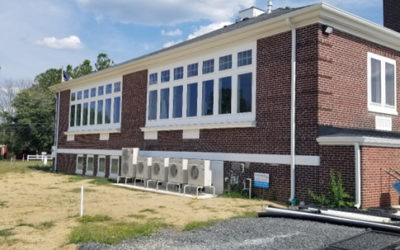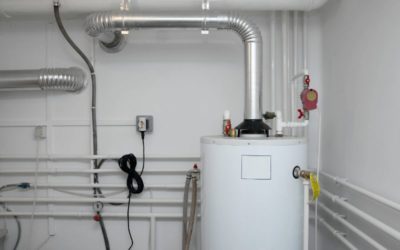You’re happy about the relief your home’s air conditioner brings. That’s until it starts producing a musty smell. Musty smells indicate excess moisture somewhere in the AC system, allowing biological contaminants to grow. Consider these common causes of a musty smell in an air conditioner and what you can do to fix it in your Marlton, NJ, home:
Clogged Condensate Drain
Your air conditioner condenses moisture from the air as it runs, forming a liquid called condensate. This drips on a pan under your evaporator coil and drains out.
That condensate drain needs periodic cleaning to keep it flowing properly. Your service technician will check and clean the condensate drain as part of your routine maintenance.
Frozen Evaporator Coil
When your evaporator coil gets too cold, it’ll freeze and develop thick ice. When this melts, it creates excess condensate and an environment conducive to biological contaminants.
A frozen evaporator coil likely means either low refrigerant or a clogged air filter. Low refrigerant will also cause excess strain on your compressor, leading to additional AC repairs. Your service technician will check the amount of refrigerant during routine maintenance to ensure there aren’t any leaks that require attention.
Clogged Filter
Your air conditioner depends on its ability to circulate air to do its job. When the air filter clogs, it increases the amount of moisture it absorbs.
A clogged filter also restricts the air flowing into the AC system, which leads to moister filters. These become the perfect breeding ground for biological contaminants, increasing that musty smell.
Uncontrolled Household Humidity
When you have high household humidity, it leads to excess moisture throughout your AC system. If you have dirty air ducts, the humidity will also collect there, contributing to a musty smell. Consider installing a whole-house dehumidifier to keep your humidity under control.
You can easily address most sources of a musty smell with routine air conditioner maintenance. Call to schedule your AC maintenance visit with the NATE-certified service technicians at Comfortworks Cooling and Heating today.
Image provided by iStock




